
Vaccines have transformed modern medicine, controlling deadly diseases and saving countless lives. Yet, despite scientific advancements, some pathogens remain without effective vaccines, posing significant risks to global health. These germs, from drug-resistant bacteria to rapidly mutating viruses, continue to cause outbreaks, challenge healthcare systems, and threaten public health worldwide. In this article, we’ll explore seven dangerous germs without effective vaccines, highlighting the risks they pose, the barriers to vaccine development, and the urgent need for effective solutions.
Table of Contents
1. Methicillin-Resistant Staphylococcus aureus (MRSA): A Deadly, Vaccine-Resistant Pathogen
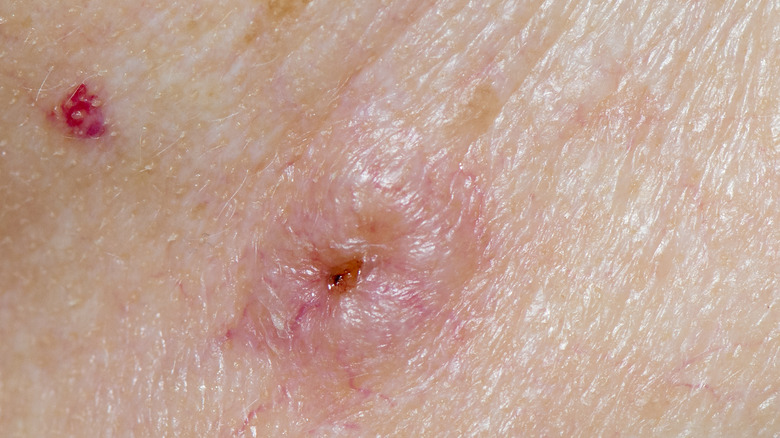
Understanding MRSA: A Dangerous Germ Without Effective Vaccine
Methicillin-Resistant Staphylococcus aureus, or MRSA, is one of the most concerning dangerous germs without effective vaccines. This antibiotic-resistant strain of bacteria is a serious threat because it has developed resistance to many commonly used antibiotics, including methicillin. While MRSA infections often begin as skin infections, they can quickly spread to the bloodstream, lungs, and other critical areas, leading to severe or life-threatening complications.
Public Health Risk of MRSA: A Persistent Pathogen Without an Effective Vaccine
In healthcare environments, MRSA poses a particularly high risk, especially to patients with compromised immune systems. This vaccine-resistant pathogen is responsible for a significant number of hospital-acquired infections, contributing to prolonged hospital stays, increased healthcare costs, and substantial mortality rates. Due to its resistance to treatment, MRSA remains one of the most dangerous bacteria without effective vaccines, making it a major public health threat that is difficult to control in hospitals and long-term care facilities.
Vaccine Development Challenges for MRSA: Why It Remains a Dangerous Germ Without an Effective Vaccine
Creating a vaccine for MRSA has proven exceptionally challenging. The bacterium is highly adaptable, capable of altering its genetic structure to evade immune responses, which makes it difficult for scientists to create a universal vaccine. This adaptability and resistance to multiple treatment methods are why MRSA remains firmly in the category of dangerous germs without effective vaccines. The complexity of targeting MRSA without enabling further bacterial mutation adds additional layers of difficulty, highlighting the urgent need for continued research into vaccine options that can address this resilient pathogen.
2. Escherichia coli O157:H7: Dangerous Bacteria in the Food Chain Without an Effective Vaccine
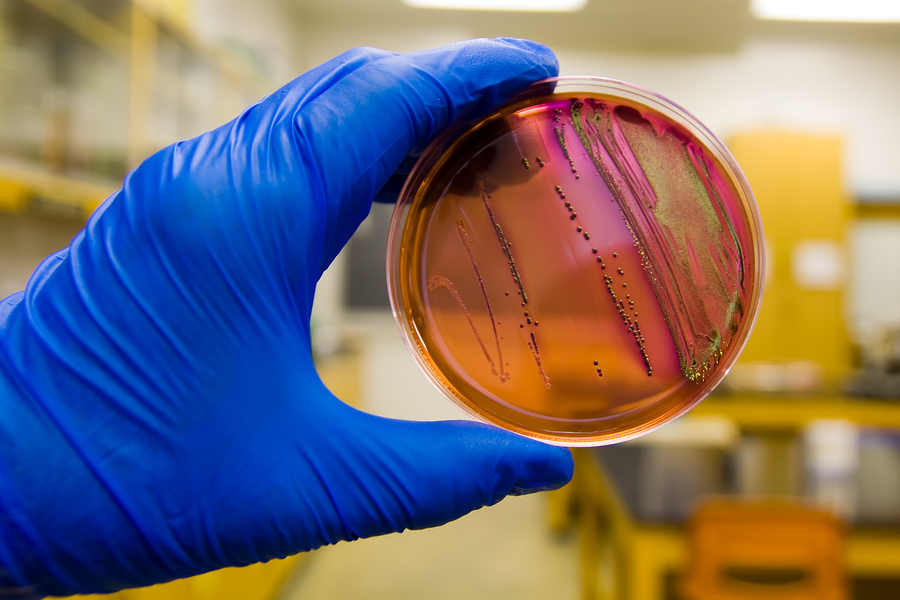
What is E. coli O157:H7? A Dangerous Germ Without an Effective Vaccine
While many strains of Escherichia coli (E. coli) are harmless, the O157:H7 strain stands out as one of the dangerous germs without effective vaccines. This particular strain produces potent toxins that can lead to severe symptoms, including intense stomach cramps, diarrhea, and even kidney failure in extreme cases. Often linked to foodborne outbreaks, E. coli O157:H7 has triggered numerous large-scale recalls in the food industry and remains a persistent threat due to the lack of an effective vaccine.
Public Health Threats Posed by E. coli O157:H7: A Dangerous Bacterium Without an Effective Vaccine
The O157:H7 strain can spread through contaminated food or water, posing a significant risk to public health. Outbreaks of this dangerous bacterium without an effective vaccine can cause severe illness, particularly in vulnerable populations such as young children and the elderly, who are more susceptible to its effects. Despite strict safety measures within the food industry, E. coli O157:H7 remains among the dangerous germs without effective vaccines, underscoring the need for ongoing vigilance in food safety practices.
Challenges in Developing a Vaccine for E. coli O157:H7
Creating a vaccine for E. coli O157:H7 has proven to be a complex challenge for researchers. This bacterium thrives in diverse environments and utilizes various mechanisms to cause illness, making it one of the dangerous germs without effective vaccines. Additionally, the development of a broadly effective vaccine requires a solution that can protect against multiple strains of E. coli, while also being safe for all age groups. This difficulty in targeting such a resilient and adaptable bacterium further complicates efforts to control its impact, highlighting why E. coli O157:H7 remains a top public health concern among dangerous bacteria without effective vaccines.
3. Clostridium difficile (C. diff): A Lethal Healthcare-Associated Pathogen Without an Effective Vaccine

The Risk of C. difficile Infections: A Dangerous Germ Without an Effective Vaccine
Clostridium difficile, commonly known as C. diff, is one of the most problematic dangerous germs without effective vaccines, particularly in healthcare settings. This bacterium typically infects the intestines, often after antibiotic treatments disrupt the natural balance of gut bacteria. C. diff infections can result in severe diarrhea, painful inflammation of the colon, and, in extreme cases, can even be fatal. The resilience of C. diff and its high transmission rate make it a significant challenge in hospitals and care facilities, underscoring its status as a dangerous pathogen without an effective vaccine.
Public Health Impact of C. difficile : Dangerous Bacteria Without Effective Vaccines
As one of the dangerous bacteria without effective vaccines, C. difficile has become a leading cause of healthcare-associated infections, especially among vulnerable populations. This pathogen poses serious risks for the elderly, people with weakened immune systems, and those on prolonged antibiotic treatments, as these groups are more susceptible to severe and recurrent infections. Without an effective vaccine, C. diff continues to spread in healthcare settings, representing a major public health threat and leading to increased healthcare costs and patient mortality rates.
Obstacles to Vaccine Development for C. difficile: Why It Remains a Dangerous Germ Without an Effective Vaccine
Creating a vaccine for C. difficile has proven to be a difficult task for researchers due to the unique conditions of the human gut. An effective vaccine must target C. diff specifically without disturbing the beneficial bacteria that support digestion and immunity, a delicate balance that complicates vaccine development. This unique challenge is one of the main reasons C. difficile remains one of the dangerous germs without effective vaccines. The persistence of this pathogen highlights the urgent need for innovative solutions to address one of healthcare’s most difficult infection control issues.
4. Respiratory Syncytial Virus (RSV): A Dangerous Threat to Infants and the Elderly Without an Effective Vaccine

The Impact of RSV on Public Health: A Dangerous Germ Without an Effective Vaccine
Respiratory Syncytial Virus, or RSV, is one of the most dangerous germs without effective vaccines, causing widespread respiratory infections, particularly among high-risk groups such as young children and the elderly. While most RSV infections result in mild cold-like symptoms, the virus can lead to more severe conditions like pneumonia, bronchiolitis, and severe lung infections in infants, older adults, and individuals with compromised immune systems. Each year, RSV leads to thousands of hospitalizations and significant healthcare burdens, highlighting its role as a dangerous pathogen without an effective vaccine.
Why RSV is a Dangerous Germ Without a Vaccine: A Critical Public Health Threat
As one of the leading causes of hospitalization among infants, RSV is a critical public health threat and one of the dangerous germs without effective vaccines. Seasonal RSV outbreaks, which typically coincide with the flu season, can create additional strains on healthcare systems, especially during times when resources are already stretched thin. The high transmission rate and the virus’s ability to cause severe illness in vulnerable populations, including infants and the elderly, underscore why RSV remains a top priority in the search for effective vaccines for dangerous germs.
Challenges in Developing an RSV Vaccine: Why It Remains a Dangerous Germ Without an Effective Vaccine
Despite decades of research, developing a vaccine for RSV has been particularly challenging, which is why it remains one of the dangerous germs without effective vaccines. Early attempts at an RSV vaccine led to severe adverse reactions in infants, making researchers cautious. The virus’s ability to provoke intense immune responses further complicates the development of a safe and effective vaccine. Although several promising RSV vaccines are currently in development, none have yet met the stringent criteria for widespread use, which means RSV remains a major public health threat without an effective vaccine.
5. Neisseria gonorrhoeae (Gonorrhea): A Vaccine-Resistant STI Without an Effective Vaccine
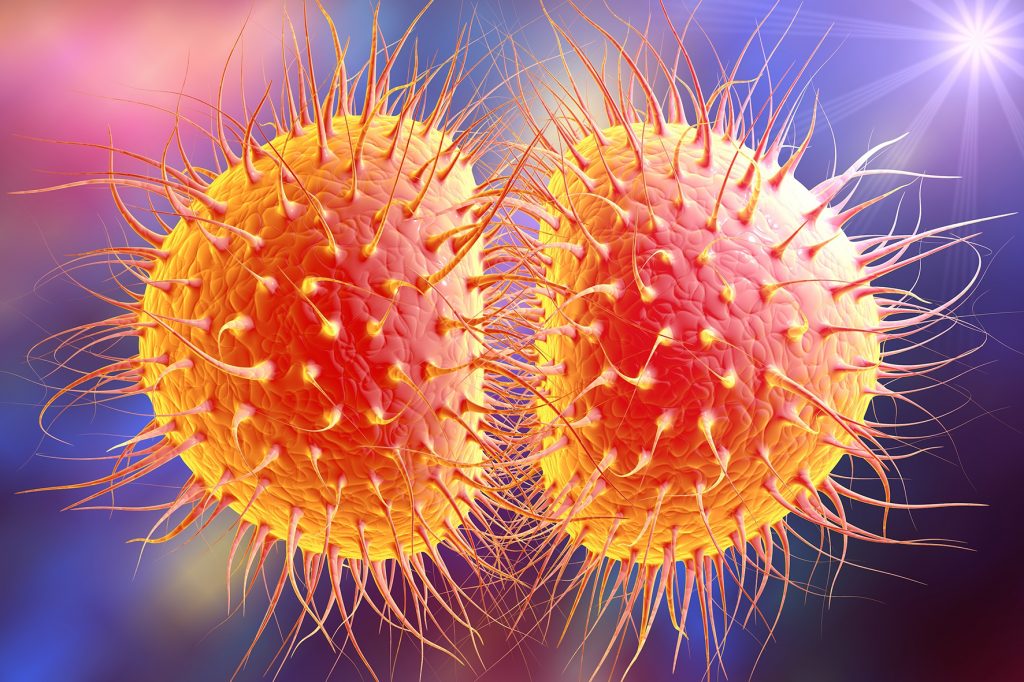
The Growing Threat of Drug-Resistant Gonorrhea: A Dangerous Germ Without an Effective Vaccine
Neisseria gonorrhoeae, the bacterium responsible for gonorrhea, has become one of the most dangerous germs without effective vaccines. This sexually transmitted infection (STI) has grown increasingly resistant to nearly all antibiotics used to treat it, earning it the status of a “superbug.” As gonorrhea continues to evolve, it becomes harder to treat, leading to more severe health complications such as infertility, pelvic inflammatory disease, and other potentially life-threatening issues. The development of drug-resistant gonorrhea makes it a major public health concern and reinforces its place among dangerous germs without effective vaccines.
Why Gonorrhea is a Public Health Concern: A Vaccine-Resistant Pathogen
Gonorrhea’s growing resistance to antibiotics is a major reason why it remains one of the dangerous germs without effective vaccines. With each passing year, gonorrhea strains become more resistant to available treatments, making it increasingly difficult to control outbreaks. As antibiotics become less effective, the risk of untreatable gonorrhea spreading throughout communities grows. This poses a significant challenge for public health systems globally, as the spread of vaccine-resistant pathogens like gonorrhea places enormous pressure on healthcare resources, especially as traditional treatments become ineffective.
Challenges in Developing a Gonorrhea Vaccine: Why It Remains a Dangerous Germ Without an Effective Vaccine
Creating a vaccine for gonorrhea is a complicated task due to the bacterium’s ability to rapidly mutate and evade immune defenses. This high mutation rate makes it extremely challenging to develop a long-lasting and effective vaccine, ensuring that gonorrhea remains firmly within the group of dangerous germs without effective vaccines. The vaccine development challenges posed by gonorrhea’s rapid genetic changes prevent researchers from creating a universal vaccine that can protect against all strains. Until a breakthrough is made, gonorrhea will continue to be one of the most pressing global health risks without an effective vaccine.
6. Mycobacterium tuberculosis (TB): A Persistent Global Health Threat Without an Effective Vaccine
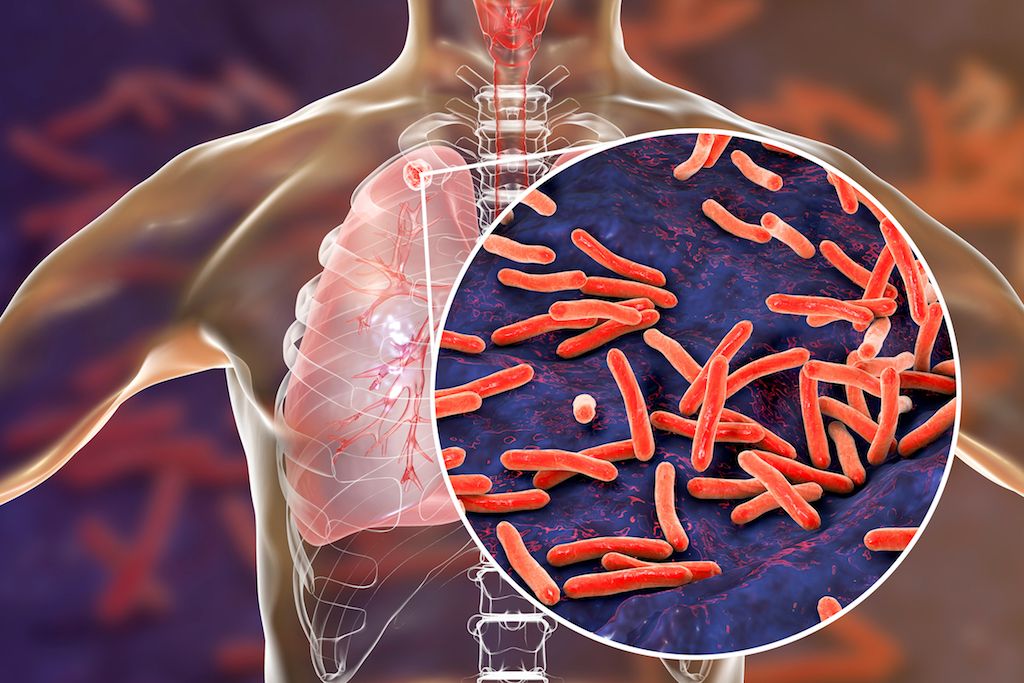
The Global Burden of Tuberculosis: A Dangerous Germ Without an Effective Vaccine
Tuberculosis (TB), caused by Mycobacterium tuberculosis, remains one of the most dangerous germs without effective vaccines despite the availability of the BCG vaccine. TB primarily affects the lungs, causing symptoms such as persistent coughing, fever, and weight loss. Although the BCG vaccine is used to prevent TB in infants, it is not fully effective in adults, particularly for the most dangerous forms of the disease. This makes TB a continuing global health risk. Particularly in developing countries, TB remains a significant challenge, affecting millions annually. The continuing presence of TB as a global health threat underscores why it is one of the dangerous germs without effective vaccines.
The Rise of Drug-Resistant TB: A Vaccine-Resistant Pathogen
The emergence of multidrug-resistant (MDR) and extensively drug-resistant (XDR) strains of Mycobacterium tuberculosis has made TB even more difficult to treat. These resistant strains of TB have created additional challenges for global health efforts, making it harder to control and eradicate the disease. As these vaccine-resistant pathogens spread, they further complicate the global fight against TB, intensifying the need for new treatment strategies and a more effective vaccine. The rise of MDR and XDR TB emphasizes the urgency of developing better vaccines and treatments for one of the world’s most dangerous germs without effective vaccines.
Vaccine Development Challenges for TB: Why It Remains a Dangerous Germ Without an Effective Vaccine
Despite years of research, developing an effective vaccine for TB has proven to be a complex challenge, contributing to its status as a dangerous germ without effective vaccines. The BCG vaccine, which provides some protection against TB in children, is not sufficient for adults, nor does it prevent the most severe and resistant forms of TB. The unique structure of Mycobacterium tuberculosis and its ability to remain latent in the body for years make vaccine development particularly difficult. This complexity adds to the ongoing struggle to develop an effective vaccine for TB, keeping it as a major public health threat and global health risk.
7. HIV: A Deadly Virus Without an Effective Vaccine
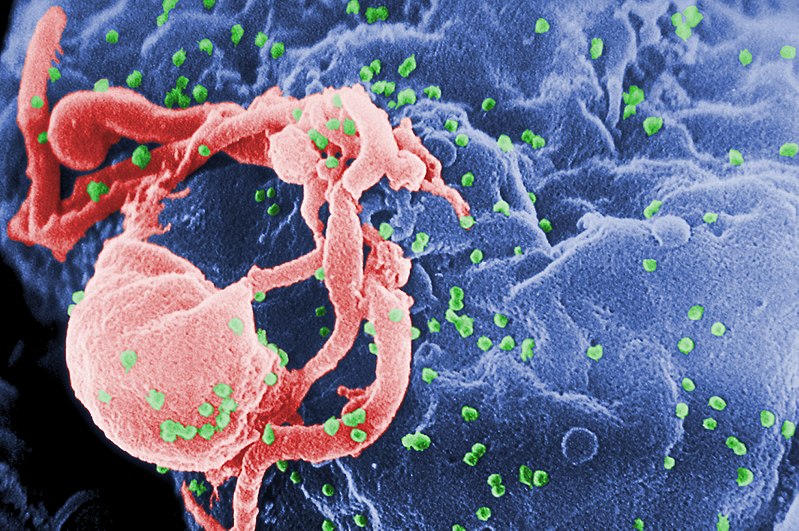
HIV’s Impact on Global Health: A Dangerous Germ Without an Effective Vaccine
Human Immunodeficiency Virus (HIV) is one of the most dangerous germs without effective vaccines. HIV attacks the immune system, weakening the body’s defenses and leaving individuals susceptible to infections and diseases. If untreated, HIV can progress to Acquired Immunodeficiency Syndrome (AIDS), which can be fatal. Despite major advancements in treatment, HIV remains a significant global health risk, affecting millions worldwide and contributing to a high mortality rate. The lack of a proven effective vaccine keeps HIV firmly entrenched as one of the dangerous germs without effective vaccines.
Public Health Risks of HIV: A Vaccine-Resistant Virus
HIV disproportionately affects certain regions, particularly sub-Saharan Africa, where it poses one of the greatest public health risks. The virus spreads primarily through unprotected sexual contact, contaminated needles, and from mother to child during birth. This widespread transmission creates ongoing public health challenges, as efforts to reduce the spread of HIV remain hampered by the lack of an effective vaccine. As one of the most dangerous germs without effective vaccines, HIV continues to challenge healthcare systems, particularly in regions most affected by the virus.
Why Developing an HIV Vaccine is Difficult: A Vaccine-Resistant Pathogen
The development of a vaccine for HIV is extremely challenging due to the virus’s high mutation rate and its ability to integrate into the host’s genome. These factors make it difficult to create a vaccine that provides long-term immunity against all HIV strains. Researchers have made significant strides in HIV treatment, but the unique characteristics of the virus, such as its ability to evade the immune system and mutate rapidly, keep it among the dangerous germs without effective vaccines. The struggle to develop a safe and effective vaccine for HIV underscores the complexity of creating vaccines for vaccine-resistant pathogens.
The Role of Antimicrobial Resistance (AMR) in Public Health
Many of these dangerous germs also pose a risk due to antimicrobial resistance (AMR), which reduces the effectiveness of antibiotics and other treatments. AMR complicates treatment for infections like MRSA and Neisseria gonorrhoeae, making these pathogens even more challenging to control. Public health organizations emphasize the importance of responsible antibiotic use to help slow the spread of AMR.
Future Outlook for Vaccine Development
While vaccine research has made strides, these pathogens illustrate the ongoing challenges scientists face. Advances in biotechnology, such as mRNA technology and novel immunotherapy approaches, offer hope. However, creating safe, effective vaccines for these germs will require time, resources, and collaboration.
FAQ
Why are some pathogens harder to vaccinate against than others?
Some pathogens evade immune responses or mutate frequently, making vaccine development challenging.
What is antimicrobial resistance (AMR), and why is it a concern?
AMR occurs when bacteria and viruses develop resistance to treatments, making infections harder to treat.
How can individuals protect themselves from these pathogens?
Practicing good hygiene, staying informed about disease outbreaks, and using antibiotics responsibly are key preventive measures.



